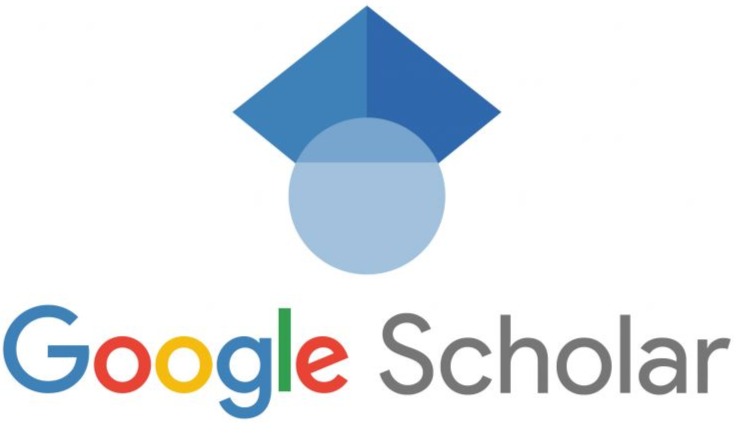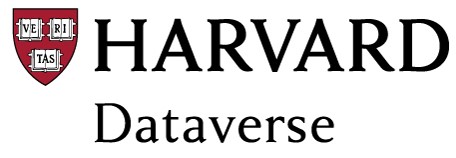UMA CHAMADO À AÇÃO
FORJANDO UM FUTURO INTERDISCIPLINAR COM INTELIGÊNCIA ARTIFICIAL
DOI:
https://doi.org/10.36674/mythos.v17i2.1041Palavras-chave:
Ética, Interdisciplinaridade, Inovação, Governança, Viés Algorítmico, SustentabilidadeResumo
A Inteligência Artificial (IA) evoluiu de um subcampo da Ciência da Computação para uma tecnologia fundamental que transforma diversas esferas, desde a biologia molecular e finanças globais até a educação e saúde, indicando uma profunda mudança de paradigma. Este editorial propõe um novo imperativo de colaboração interdisciplinar entre a academia, indústria e formuladores de políticas para superar a fragmentação e mobilizar o poder da IA por meio de uma abordagem integrada, ética e centrada no ser humano. Apesar de seu potencial inegável em diagnósticos médicos, agricultura e modelagem climática, a adoção da IA enfrenta desafios práticos e éticos urgentes. Problemas críticos incluem: 1) o viés algorítmico, que pode perpetuar desigualdades sociais; 2) privacidade e segurança de dados, agravadas pela dependência de grandes volumes de dados sensíveis e o risco da Shadow AI; 3) custos ambientais significativos do treinamento de grandes modelos (LLMs); e 4) impacto econômico duplo, prometendo produtividade, mas exigindo requalificação profissional maciça. Adicionalmente, a responsabilidade por erros da IA permanece ambígua, demandando marcos regulatórios claros, como o AI Act europeu e o PL 2.338/2023 brasileiro. Superar esses desafios exige uma abordagem multifacetada, combinando soluções técnicas (ex: Green AI, mitigação de vieses) com políticas públicas, regulamentação e educação, visando um arcabouço de governança que fomente a inovação e garanta a distribuição justa e equitativa dos benefícios da IA.
Referências
Bahoo, S., Cucculelli, M., & Qamar, D. (2023). Artificial intelligence and corporate innovation: A review and research agenda. Technological Forecasting and Social Change, 188(March 2022), 122264. https://doi.org/10.1016/j.techfore.2022.122264
Barmer, H., Dzombak, R., Gaston, M., Palat, J., Redner, F., Smith, C., & Smith, T. (2021). Human-Centered AI Human-Centered AI. In Software Engineering Institute. https://doi.org/10.1184/R1/16560183.v1
Bianchini, S., Müller, M., & Pelletier, P. (2022). Artificial intelligence in science: An emerging general method of invention. Research Policy, 51(10), 104604. https://doi.org/10.1016/j.respol.2022.104604
Brynjolfsson, E., & McAfee, A. (2017). The Business of Artificial Intelligence. Harvard Business Review. https://hbr.org/2017/07/the-business-of-artificial-intelligence
Buolamwini, J., & Gebru, T. (2018). Gender Shades: Intersectional Accuracy Disparities in Commercial Gender Classification. Proceedings of Machine Learning Research, 81, 77–91.
Callaway, E. (2022). What’s next for the AI Protein-Folding Revolution. Nature, 604(April), 234–238.
Damioli, G., Van Roy, V., & Vertesy, D. (2021). The impact of artificial intelligence on labor productivity. Eurasian Business Review, 11(1), 1–25. https://doi.org/10.1007/s40821-020-00172-8
Faiz, A., Kaneda, S., Wang, R., Osi, R., Sharma, P., Chen, F., & Jiang, L. (2024). Llmcarbon: Modeling the End-To-End Carbon Footprint of Large Language Models. 12th International Conference on Learning Representations, ICLR 2024, 1–15.
Floridi, L., Cowls, J., Beltrametti, M., Chatila, R., Chazerand, P., Dignum, V., Luetge, C., Madelin, R., Pagallo, U., Rossi, F., Schafer, B., Valcke, P., & Vayena, E. (2018). AI4People—An Ethical Framework for a Good AI Society: Opportunities, Risks, Principles, and Recommendations. Minds and Machines, 28(4), 689–707. https://doi.org/10.1007/s11023-018-9482-5
Gawande, M. S., Zade, N., Kumar, P., Gundewar, S., Weerarathna, I. N., & Verma, P. (2025). The role of artificial intelligence in pandemic responses: from epidemiological modeling to vaccine development. Molecular Biomedicine, 6(1), 1–25. https://doi.org/10.1186/s43556-024-00238-3
Hang, H., & Chen, Z. (2022). How to realize the full potentials of artificial intelligence (AI) in digital economy? A literature review. Journal of Digital Economy, 1(3), 180–191. https://doi.org/10.1016/j.jdec.2022.11.003
Hurlin, C., Pérignon, C., & Saurin, S. (2024). The Fairness of Credit Scoring Models. Management Science, September 2025. https://doi.org/10.1287/mnsc.2022.03888
Kafila, Swetha, S., Mittal, S., Vijaya Lakshmi, V., Lourens, M., & Soni, M. (2024). Combining AI with Machine Learning to Improve Decision-Making in New Business Technologies. TQCEBT 2024 - 2nd IEEE International Conference on Trends in Quantum Computing and Emerging Business Technologies 2024, 22–26. https://doi.org/10.1109/TQCEBT59414.2024.10545201
Korobenko, D., Nikiforova, A., & Sharma, R. (2024). Towards a Privacy and Security-Aware Framework for Ethical AI: Guiding the Development and Assessment of AI Systems. ACM International Conference Proceeding Series, 740–753. https://doi.org/10.1145/3657054.3657141
Mehrabi, N., Morstatter, F., Saxena, N., Lerman, K., & Galstyan, A. (2021). A Survey on Bias and Fairness in Machine Learning. ACM Comput. Surv., 54(6). https://doi.org/10.1145/3457607
Ng, D. T. K., Leung, J. K. L., Su, J., Ng, R. C. W., & Chu, S. K. W. (2023). Teachers’ AI digital competencies and twenty-first century skills in the post-pandemic world. Educational Technology Research and Development, 71(1), 137–161. https://doi.org/10.1007/s11423-023-10203-6
Pflanzer, M., Traylor, Z., Lyons, J. B., Dubljevi?, V., & Nam, C. S. (2023). Ethics in human–AI teaming: principles and perspectives. AI and Ethics, 3(3), 917–935. https://doi.org/10.1007/s43681-022-00214-z
Pigola, A., Scafuto, I. C., Costa, P. R. da, & Nassif, V. M. J. (2023). Artificial Intelligence in Academic Research. International Journal of Innovation, 11(3), 01–09. https://doi.org/10.5585/2023.24508
Rahmani, A. M., Azhir, E., Ali, S., Mohammadi, M., Ahmed, O. H., Ghafour, M. Y., Ahmed, S. H., & Hosseinzadeh, M. (2021). Artificial intelligence approaches and mechanisms for big data analytics: a systematic study. PeerJ Computer Science, 7, 1–28. https://doi.org/10.7717/peerj-cs.488
Rahwan, I., Cebrian, M., Obradovich, N., Bongard, J., Bonnefon, J. F., Breazeal, C., Crandall, J. W., Christakis, N. A., Couzin, I. D., Jackson, M. O., Jennings, N. R., Kamar, E., Kloumann, I. M., Larochelle, H., Lazer, D., McElreath, R., Mislove, A., Parkes, D. C., Pentland, A. ‘Sandy,’ …
Wellman, M. (2019). Machine behaviour. Nature, 568(7753), 477–486. https://doi.org/10.1038/s41586-019-1138-y
Reichstein, M., Camps-Valls, G., Stevens, B., Jung, M., Denzler, J., Carvalhais, N., & Prabhat. (2019). Deep learning and process understanding for data-driven Earth system science. Nature, 566(7743), 195–204. https://doi.org/10.1038/s41586-019-0912-1
Ren, S., Tomlinson, B., Black, R. W., & Torrance, A. W. (2024). Reconciling the contrasting narratives on the environmental impact of large language models. Scientific Reports, 14(1), 1–8. https://doi.org/10.1038/s41598-024-76682-6
Rillig, M. C., Ågerstrand, M., Bi, M., Gould, K. A., & Sauerland, U. (2023). Risks and Benefits of Large Language Models for the Environment. Environmental Science and Technology, 57(9), 3464–3466. https://doi.org/10.1021/acs.est.3c01106
Schwartz, R., Dodge, J., Smith, N. A., & Etzioni, O. (2020). Green AI. Communications of the ACM, 63(12), 54–63. https://doi.org/10.1145/3381831
Sharma, R. (2021). Artificial intelligence in agriculture: A review. Proceedings - 5th International Conference on Intelligent Computing and Control Systems, ICICCS 2021, Iciccs, 937–942. https://doi.org/10.1109/ICICCS51141.2021.9432187
Silic, M., Silic, D., & Kind-Trüller, K. (2025). From Shadow It to Shadow AI–Threats, Risks and Opportunities for Organizations. Strategic Change, 1–16. https://doi.org/10.1002/jsc.2682
Topol, E. J. (2019). High-performance medicine: the convergence of human and artificial intelligence. Nature Medicine, 25(1), 44–56. https://doi.org/10.1038/s41591-018-0300-7
Trabelsi, M. A. (2024). The impact of artificial intelligence on economic development. Journal of Electronic Business & Digital Economics, 3(2), 142–155. https://doi.org/10.1108/jebde-10-2023-0022
Villarreal-Espinosa, J. B., Berreta, R. S., Allende, F., Garcia, J. R., Ayala, S., Familiari, F., & Chahla, J. (2024). Accuracy assessment of ChatGPT responses to frequently asked questions regarding anterior cruciate ligament surgery. Knee, 51(March 2023), 84–92. https://doi.org/10.1016/j.knee.2024.08.014
Wang, H., Fu, T., Du, Y., Gao, W., Huang, K., Liu, Z., Chandak, P., Liu, S., Van Katwyk, P., Deac, A., Anandkumar, A., Bergen, K., Gomes, C. P., Ho, S., Kohli, P., Lasenby, J., Leskovec, J., Liu, T. Y., Manrai, A., … Zitnik, M. (2023). Scientific discovery in the age of artificial intelligence. Nature, 620(7972), 47–60. https://doi.org/10.1038/s41586-023-06221-2
WEF. (2025). Future of Jobs Report 2025. In Insight Report. https://doi.org/10.1007/978-1-137-40325-4
Whittlestone, J., Nyrup, R., Alexandrova, A., Dihal, K., & Cave, S. (2019). Ethical and societal implications of algorithms, data, and artificial intelligence: a roadmap for research. In London: Nuffield …. https://www.nuffieldfoundation.org/sites/default/files/files/Ethical-and-Societal-Implications-of-Data-and-AI-report-Nuffield-Foundat.pdf
Downloads
Publicado
Como Citar
Edição
Seção
Licença
Copyright (c) 2025 Rodrigo Franklin Frogeri; Fabrício Pelloso Piurcosky, Pedro dos Santos Portugal Júnior

Este trabalho está licenciado sob uma licença Creative Commons Attribution 4.0 International License.
A partir de janeiro de 2024, os autores mantêm os direitos autorais relativos ao seu artigo e concedem à revista Mythos, da FEPESMIG, o direito de primeira publicação, com o trabalho simultaneamente licenciado sob a licença Creative Commons Attribution 4.0 International (CC BY 4.0), conforme consta no documento PDF do artigo. Essa licença prevê que o artigo publicado pode ser compartilhado (permite copiar e redistribuir o material em qualquer meio ou formato) e adaptado (permite remixar, transformar e criar a partir do material para qualquer finalidade, inclusive comercial) por qualquer pessoa.




























